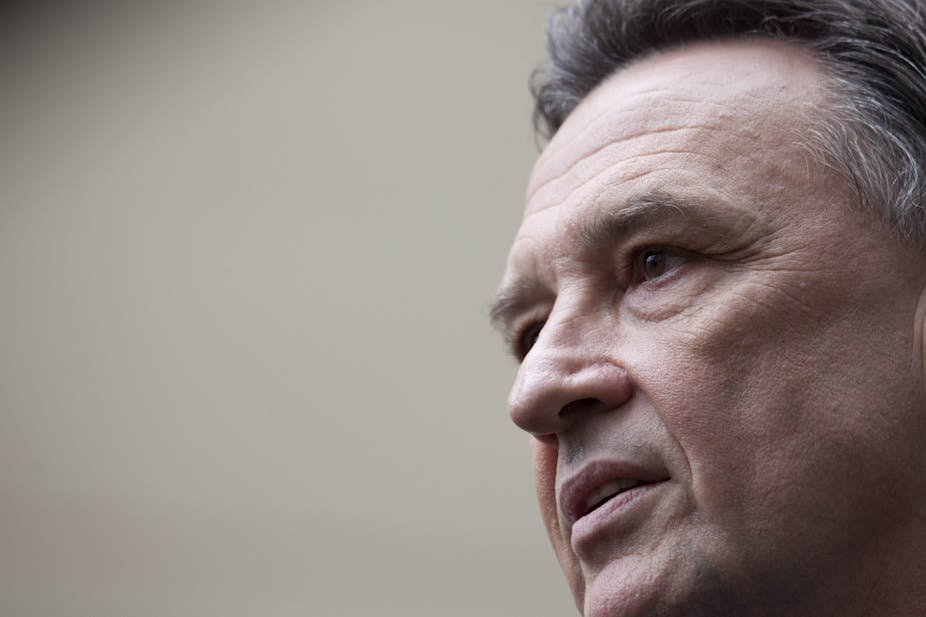Australian Trade Minister Craig Emerson’s opinion piece in The Weekend Australian, titled “Doha is no dodo as it takes off on new flight path”, brings new enthusiasm and life to the Doha Development Agenda. He argues that an Australian initiative would “…build confidence that the old Doha bird has found a new flight path and has plenty of life in it yet”.
When the Labor government was pushing towards implementing a carbon price, pressure groups had stepped up their call for tariffs on goods imported from nations that do not have a price on carbon. Craig Emerson then asserted that Australia will never go back to the protectionist trade policy measures of the past.
Emerson’s refusal to bow to demands from protectionist pressure groups has strengthened Australia’s moral position regarding the free trade agenda. Also, by resorting to protection of this sort, Australia would be creating a serious stumbling block towards a more liberal multilateral trading system.
The latest enthusiasm by Dr Emerson should be welcome news for the world trading system. Australia can use its close ties with the US and other large nations such as China and India to instigate a revival of the stalled Doha Development Round. The Doha negotiations, which began in 2001, broke down during negotiations in 2008, mainly due to issues between developing giants like China and India and the developed countries.
A successful conclusion of the Doha Round is likely to provide welfare gains of at least US$120 billion to the world economy. This type of benefit has the potential to lift 100 million people out of poverty. It would allow developing countries to secure gains that would arise from the new opportunities in the multilateral trading system.
The European Commissioner for Trade, Karel De Gucht, visited Australia in 2011 to hold talks with Dr Emerson on ways to kick start the stalled Doha talks. It is apparent that Karel, a Doha optimist, believes that Australia can play a decisive role at the negotiations table. Karel is absolutely right: Australia has the political will and capacity to take this role.
Australia must also remind the EU and other developed countries to be willing to offer concessions by not including trade-unrelated issues into trade negotiations. It is well known what happened when the EU demanded human rights be put into the proposed India-EU trade agreement. With so much at stake, we cannot let issues peripheral to trade jeopardise further opening of trade between developing and developed nations.
It is widely acknowledged that the stalled Doha round has contributed to the proliferation of preferential trade agreements or trade agreements between a group of countries. Leading and influential trade economist Professor Jagdish Bhagwati of Columbia University has recently described the rise in regional agreements as termites in the trading system.
Professor Bhagwati argues that the underlying problem with regional agreements is that trade is diverted from non-member countries who may be cost-efficient to relatively inefficient member countries. When this happens, it disrupts the efficient allocation among countries.
Developing countries have a reason to look to Australia for the political will required to resurrect the Doha Round and progressively reduce the most favoured nation (MFN) tariffs. If MFN tariffs go down to zero, there will be no need for preferential trading agreements to free up trade.
Australia is recognised as a significant nation in terms of global affairs. It is the world’s 12th largest economy and has shown continued strong economic performance, even during times of crisis. Its alliance with the US and EU is imposing. Developing nations are looking forward to the strong political leadership of Australia in claiming a larger role in WTO and successfully conclude the Doha Round.
The Australian initiative led by Julia Gillard and Craig Emerson involves breaking the Doha Round into its constituent parts and negotiations on each part brought to a conclusion on an individual basis. One of the parts that the initiative argues should be easy to achieve is trade facilitation.
Trade facilitation reforms will require slashing unnecessary documentation requirements will improve moving goods through customs faster and more efficiently. According US economists Gary Hufbauer, Jeffrey Schott, and Woan Wong, this will deliver gains of at least $130 billion annually, with a disproportionate share going to developing countries.
Free trade cannot be made accidental. It must be made to happen. It is in the overall interest of all nations, developed and emerging, large and small, to engage in multilateral negotiations towards a successful conclusion of the Doha Development Agenda. The political leaders of our time owe this to the world.

